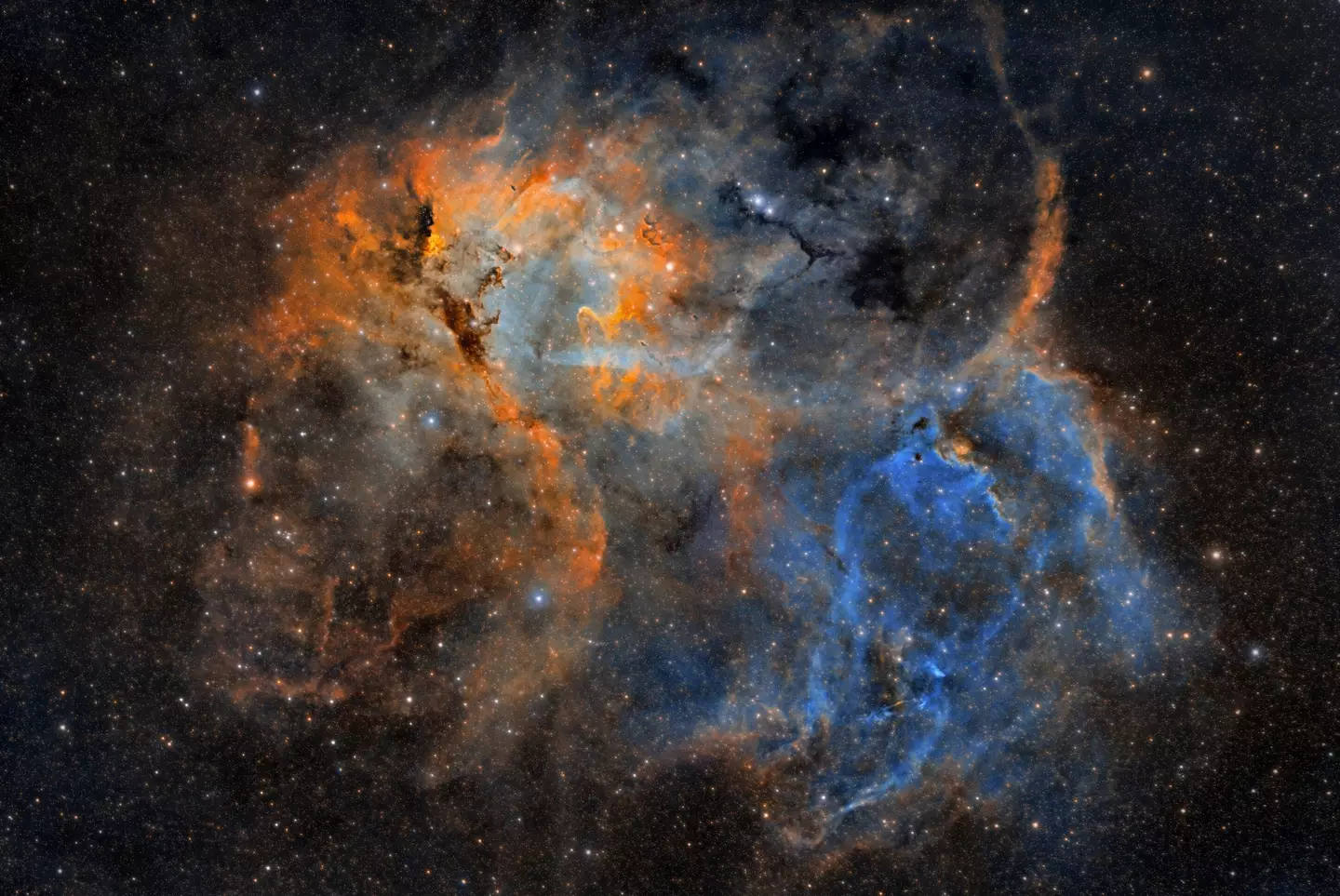
Ever wanted to live forever? Well, according to one unnerving scientific theory, we’re all immortal – and the reason why is confusing to say the least.
Some scientists reckon that by 2030 we’ll have reached ‘longevity escape velocity’ and we’ll be able to choose to live forever.
But according to the theory of quantum immortality, everyone who ever lived is immortal, and it might hurt your head a little trying to make sense of it all.
The theory basically means that people never die, but as expected, it’s not as simple as it sounds.

Living forever might not be as attractive as you think – seeing things like this in the sky in the long run is highly unlikely. (Getty Stock Photo)
Quantum immortality entails that a person’s consciousness never really dies, but it means that we might have lived through countless multiple apocalypses and extinction events.
It’s enough to fuel your existential dread for months, so – with that in mind – let’s learn a bit more about it, shall we?
The theory has been explained by many people, but we’re going to focus on social media user @joli.artist, as she discussed the idea of quantum immortality, as well as American physicist Hugh Everett’s ‘many worlds’ theory.
He suggested that there are countless other worlds and other realities, and when we die we simply transfer to another one of those.
His biographer Eugene Shikhovtsev wrote: “Everett firmly believed that his many-worlds theory guaranteed him immortality: his consciousness, he argued, is bound at each branching to follow whatever path does not lead to death.”
In her TikTok video, Joli suggested that there’s a chance we ‘never really die’ and could have experienced the world ending on numerous occasions before.
“Whenever you die in one universe, your consciousness just gets transferred into another universe where you survive,” she said.
In a nutshell, that is the idea here.
Of course, it’s a lot more complicated than that, involving a lot of maths and science, but we’re working on a word count here, and honestly it’s really quite difficult and boring in truth.
Joli explained how – if there’s anything to this theory – we wouldn’t remember the previous world that we switched over to but might have some basic recollections – much like the Mandela Effect.
“So after the inevitable apocalypse occurs, you’re going to wake up the next day in a new reality, and the next thing you know, you’re going to find yourself on Reddit talking about ‘since when did Pizza Hut have two Ts?” she explained.
“Arguing with people who are native of this new reality, talking about ‘it’s always had two Ts?'”

For all you know, the world may have ended several times already (Getty Stock Image/David Wall)
Joli added: “You don’t believe me? Okay, it’s been about 65 million years since the asteroids allegedly took out the dinosaurs.
“So you mean to tell me that in the last 65 million years, no other asteroids have come through the neighbourhood and taken us out?
“What I’m saying is that Earth is probably always being taken out, and our consciousness just keeps transferred to another parallel universe – and then another one, and another one.
“For all you know the apocalypse probably already happened last night…”
Anyway, the very idea of this has some people’s heads in a spin.
“BYE NOT TODAY,” said one comment.
“OK, I’m actually kind of freaking out right now coz I’m not the conspiracy typa guy, but you’re like eerily making sense,” said another.
“The thought of never being able to actually die is extremely depressing, and it’s giving me a headache,” a third added.
Yep, you can just rock me to sleep tonight.
